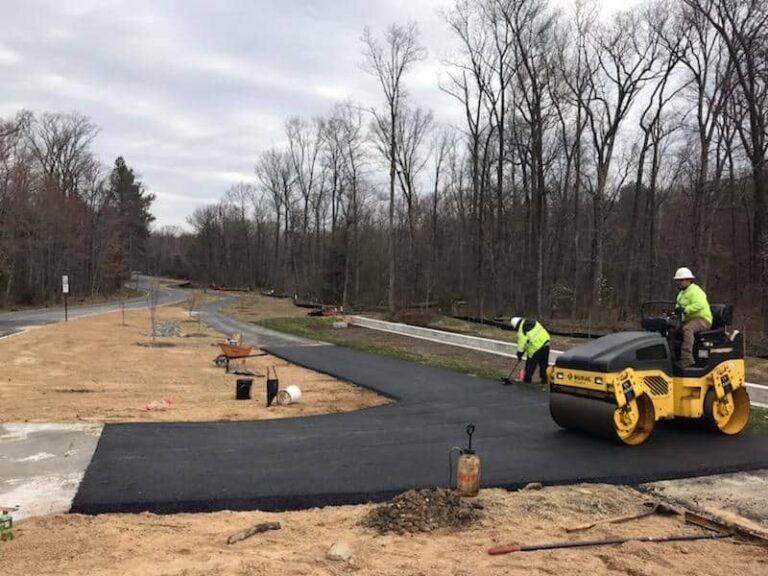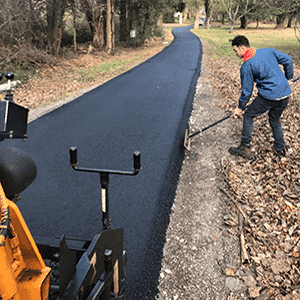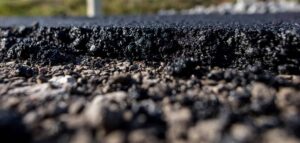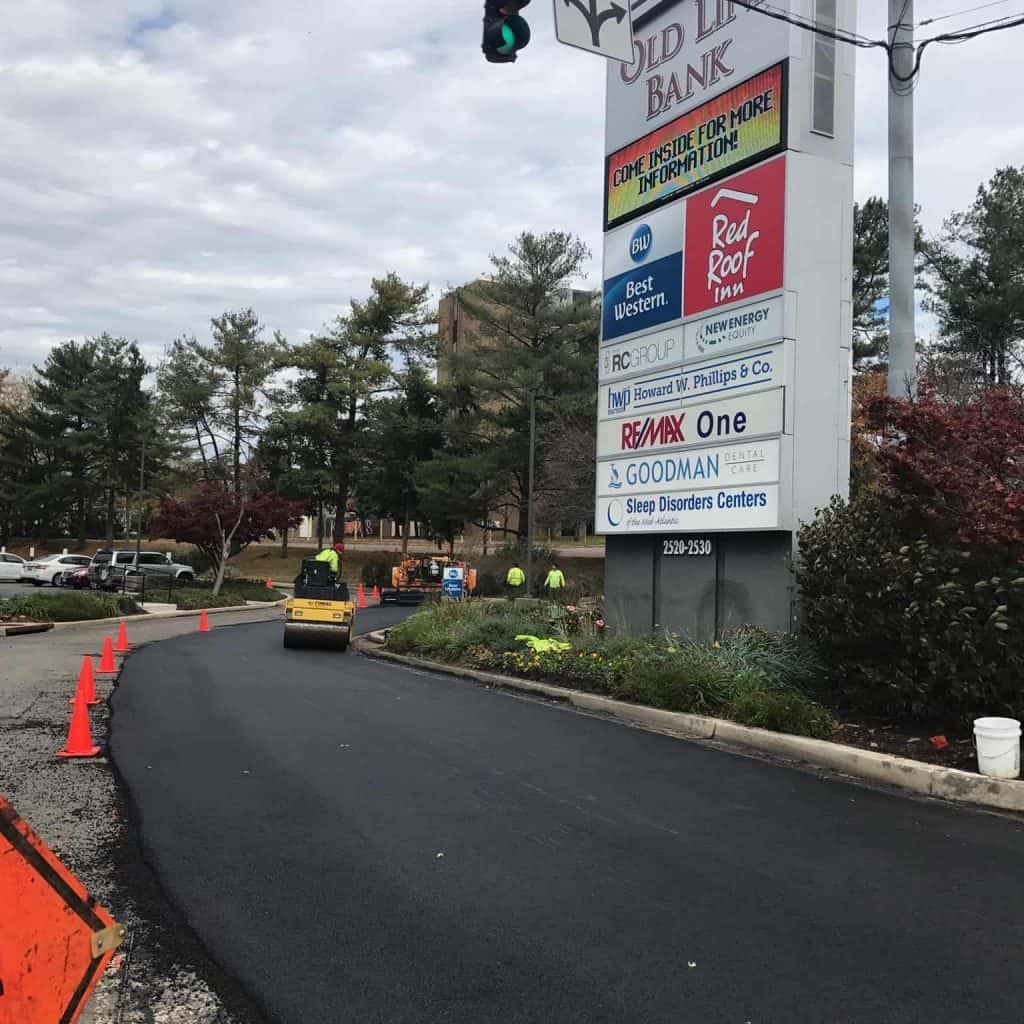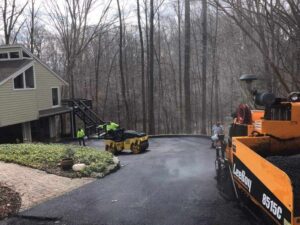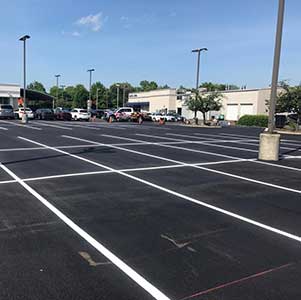If you’ve noticed some signs that your asphalt driveway is wearing down, you might be wondering whether it’s better to do some repairs or to completely replace the driveway. Minor repairs should be addressed immediately, so that they don’t become major problems. However, some driveway problems are simply not worth repairing, and in those cases it’s really more cost-effective to simply repave your entire asphalt driveway. Here are some things you should look for, so that you will be able to make the best decision on repair or replacement.
Raveling
All asphalt driveways are combinations of aggregate and binder, and over time the aggregate can break away from the binder. When you begin to notice pieces of gravel on the surface of your driveway, or if you see that pits are developing, these are all signs of raveling. If addressed promptly, raveling can be treated effectively by any good paving company. However, when this is ignored, you’ll see fine particles of aggregate coming loose, and this will be followed by larger pieces which break away, and make the surface rougher.
Standing water
When you notice that water is beginning to pool up on your driveway, this is most likely a sign of some kind of drainage issue. Over a number of years, pits, depressions, and ruts can form in your driveway so as to create opportunities for water to pool. If water is allowed to gather like this on the surface of your asphalt driveway, it will eventually work its way under the top layer, and during a cold season, that will promote freezing and thawing. When your driveway goes through these kinds of contractions, it will inevitably weaken the entire structure, leading to major damage.
Missing pieces
If you have put off repairs on your driveway for longer than you should have, it’s very possible that chunks of asphalt may have come out, to create potholes in your driveway. You can of course apply a short-term fix of using cold-mix asphalt to fill potholes like this, but that won’t last. Water will seep in around the cracks, and eventually work loose your filler material, so you’ll be left with the original problem again. This is a good sign that asphalt replacement will be necessary for your driveway.
Alligator cracks
In some situations, your driveway can develop a whole series of interconnecting and overlapping cracks. These cracks will then begin the process of dividing your pavement into a whole slew of different sections, which is known as alligator cracking. When this happens, it’s often a sign that the underlayment of your pavement has a problem, and is no longer supporting the structure. Eventually, this will cause problems on the surface, and it’s another indication that you might need to replace your driveway.
Old age
Asphalt driveways can last for a very long time indeed, if properly cared for. However, even the most durable asphalt driveways will eventually wear out, and that will call for a complete replacement. After about 10 or 15 years, you may notice that the repair issues are beginning to increase with your driveway, and it may be cracked and faded from the effects of ultraviolet rays.
You might also begin to notice a lot of crumbling edges in areas where raveling has taken place. Instead of dealing with all these issues individually, it might be time to concede that they’re just too numerous to address, and you should then consider putting down an entirely new asphalt surface. While it’s definitely possible that your asphalt driveway will be good for 20 years or more, when you start seeing an accumulation of problems, you are probably better off to just repave your asphalt driveway, and save money on all those repairs.

